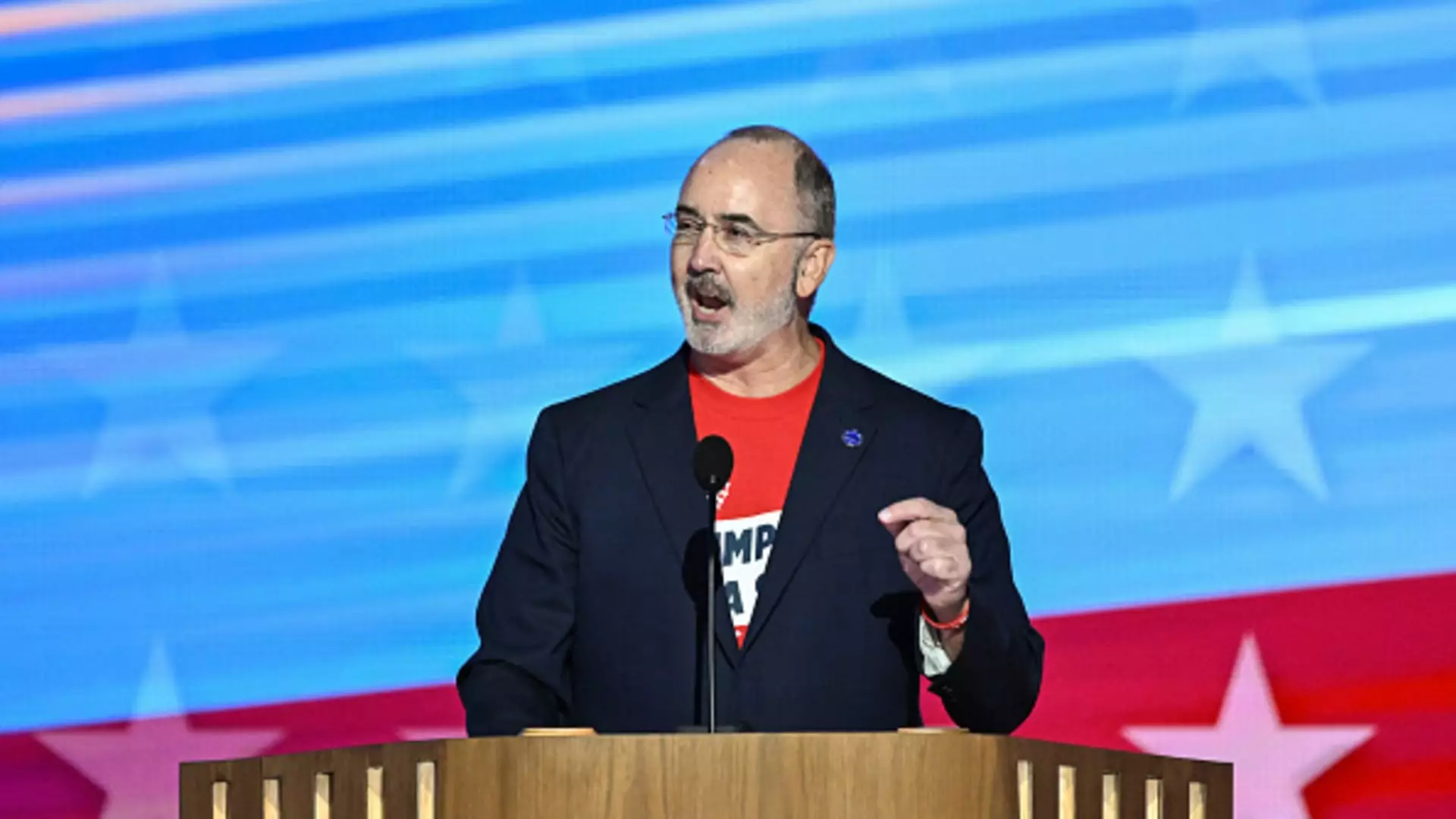In an unexpected turn of events, Shawn Fain, the recently elected President of the United Auto Workers (UAW), has emerged as an unlikely supporter of President Donald Trump’s controversial tariff policies. This is particularly surprising considering Fain’s previous fierce critiques of Trump during the election cycle. Tariffs on North American automotive parts and vehicles, seen by many as a radical approach to reigniting the dwindling manufacturing sector, have gained Fain’s endorsement in a move that raises eyebrows across the political landscape.
Fain’s shift indicates a willingness to collaborate with the administration to address what he describes as a “free trade disaster” that has eroded American jobs for decades. His comments reveal a significant acknowledgment: that tariffs, while not the ultimate remedy, may serve as a critical mechanism for protecting American labor. By emphasizing that “tariffs are an attempt to stop the bleeding from the hemorrhaging of jobs,” he’s asserting that a radical change is necessary to re-establish the strength of American industry.
The Economic High Stakes
Fain’s endorsement of tariffs brings to light a crucial dilemma for American workers. For years, the auto industry faced the challenges created by the North American Free Trade Agreement (NAFTA), which critics argue facilitated a flood of low-cost imports at the expense of domestic jobs. The call to impose a 25% levy on imported auto components and vehicles is viewed by many as an emotional response to the frustrations of American workers, yearning for government intervention to protect their livelihoods.
Yet, as the tariffs loom, the stakes become even higher. The UAW’s position suggests that they are prepared to shoulder the risk of rising vehicle prices, assuming that the blame for any price increases will ultimately fall on corporations that choose to protect profit margins over labor. The audacity of this claim raises critical questions about corporate accountability—a theme that has rapidly become a central tenet in Fain’s negotiations with industry titans. While labor leaders typically aren’t considered allies of a Republican administration, Fain’s perspective signals a deeper evolution in labor politics that could reshape the path forward for American manufacturing.
Corporate America: The Real Villain?
Fain has openly positioned corporate America as the real antagonist in this economic narrative. His statements allude to the notion that any potential price increases attributable to tariffs could only reflect corporate greed rather than the necessity of protecting American workers. The framing of the situation in this light brings forth an undeniably progressive critique that challenges the neoliberal paradigms of unregulated capitalism and corporate oligopoly.
While many automotive executives have voiced concerns regarding the chaotic impact of tariffs on manufacturing, Fain’s combative stance against corporate America shines a light on the inherent contradictions within the capitalist framework. Even as Ford’s CEO Jim Farley laments costs and chaos, Fain’s remarks indicate that he is unafraid to hold corporations accountable—as if challenging them to make ethical decisions instead of prioritizing financial gain over the American workforce.
Negotiation or Coercion? The Future of UAW and Trump
What Fain’s recent alignment with Trump signifies for future labor negotiations remains ambiguous. Over the past few years, labor unions have often been pitted against business interests, but Fain has made it clear that he’s willing to work with the administration to pass meaningful reforms. His admission that he has not yet spoken directly to Trump but is engaging with his team suggests a potential willingness to negotiate on critical labor issues and economic policies.
However, this approach raises the question of whether it is collaboration or coercion. The timing of Fain’s support—against the backdrop of ongoing federal investigation into UAW corruption—could also be interpreted as an effort to legitimize the union’s image in the eyes of the administration. In a political climate where labor unions face skepticism, such alliances risk minimizing the grassroots struggles of workers in favor of securing immediate gains.
The Complexity of Modern Labor Politics
In the broader arena of labor politics, Fain’s acceptance of Trump’s policies signals a fracture in traditional ideologies. Aligning with a president who previously criticized unions and labor leaders certainly complicates the narrative. As Fain seeks to redefine the UAW’s role within both the political and corporate landscape, he is stepping into a complex battleground where negotiating power, ethical responsibility, and the nostalgia of American manufacturing collide.
As the labor landscape continues to shift, Fain embodies a new age of union leadership that looks to leverage its political influence to advocate for worker rights while embracing unorthodox partnerships. This blending of ideology and pragmatism may not only redefine labor’s future in America but also signal a fresh chapter in how labor leaders navigate the turbulent waters of politics, capital, and the quest for justice for workers in a rapidly evolving economic environment.



Leave a Reply